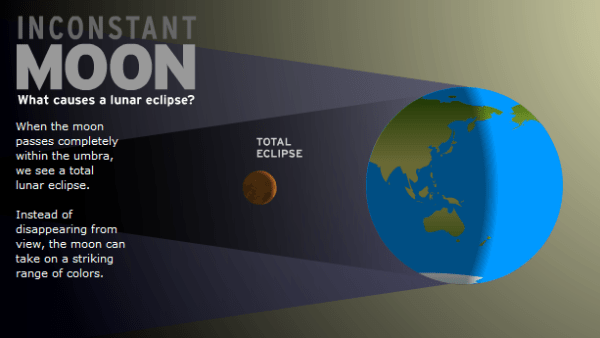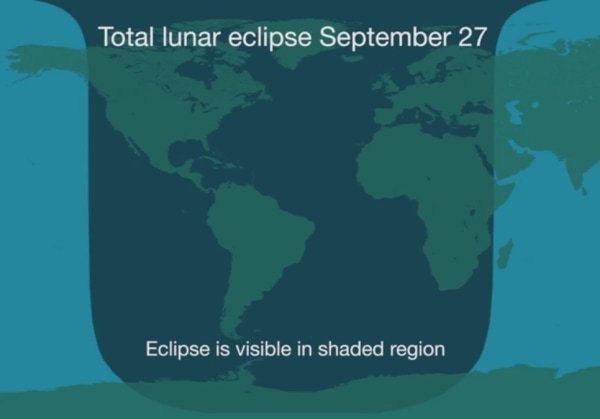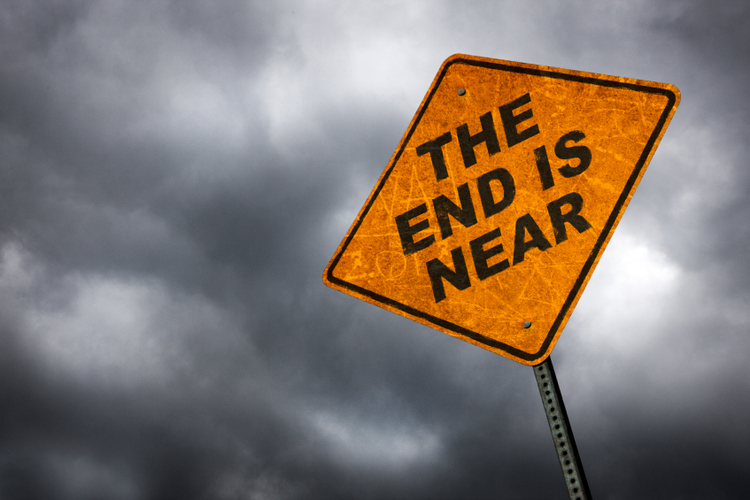Skywatchers will have something to howl about on Sunday: a total Supermoon eclipse. Not only is this the best and last opportunity of the year for Americans to witness any kind of eclipse, but this particular phenomenon is extremely rare, happening perhaps five times a century. The last Supermoon eclipse was in 1982, and there won't be another until 2033.
Beginning at 8:11 p.m. Eastern (5:11 p.m. Pacific), the moon — currently full and at the closest point in its orbit, making it an extra-large, extra-bright "supermoon" — will enter the shadow of the Earth, darkening it until only light refracted around the planet falls on its surface. The redness of this light gives the moon a rusty color, resulting in the nickname of this type of eclipse: a "blood moon."

NBC News
The total lunar eclipse, in which the moon is completely engulfed in the center of the Earth's shadow, or umbra, begins two hours later, lasting for a little more than an hour before things brighten up again.
Unlike a solar eclipse, when the moon passes between the Earth and the sun, there's no need for eye protection or special equipment. Just point your eyes upward and take it in.

Sunday's eclipse will encompass most of the Americas, Africa and Europe. NASA / JPL-Caltech
Weather permitting, everyone in the Lower 48 states should be able to view the eclipse — in fact, it may be hard not to notice the blood-red moon hanging in the sky for the better part of the night. All of South America likewise has the opportunity, along with almost all of Africa and Europe.
It being fall, however, clouds could be a problem. If it looks like the moon will be obscured in your area (or you happen to be on the wrong half of the planet to see it), a number of observatories will be streaming live video of the eclipse, along with expert commentary. Slooh Community Observatory always puts on a good show, and NASA will be doing a broadcast as well.
Beginning at 8:11 p.m. Eastern (5:11 p.m. Pacific), the moon — currently full and at the closest point in its orbit, making it an extra-large, extra-bright "supermoon" — will enter the shadow of the Earth, darkening it until only light refracted around the planet falls on its surface. The redness of this light gives the moon a rusty color, resulting in the nickname of this type of eclipse: a "blood moon."

NBC News
The total lunar eclipse, in which the moon is completely engulfed in the center of the Earth's shadow, or umbra, begins two hours later, lasting for a little more than an hour before things brighten up again.
Unlike a solar eclipse, when the moon passes between the Earth and the sun, there's no need for eye protection or special equipment. Just point your eyes upward and take it in.

Sunday's eclipse will encompass most of the Americas, Africa and Europe. NASA / JPL-Caltech
Weather permitting, everyone in the Lower 48 states should be able to view the eclipse — in fact, it may be hard not to notice the blood-red moon hanging in the sky for the better part of the night. All of South America likewise has the opportunity, along with almost all of Africa and Europe.
It being fall, however, clouds could be a problem. If it looks like the moon will be obscured in your area (or you happen to be on the wrong half of the planet to see it), a number of observatories will be streaming live video of the eclipse, along with expert commentary. Slooh Community Observatory always puts on a good show, and NASA will be doing a broadcast as well.



